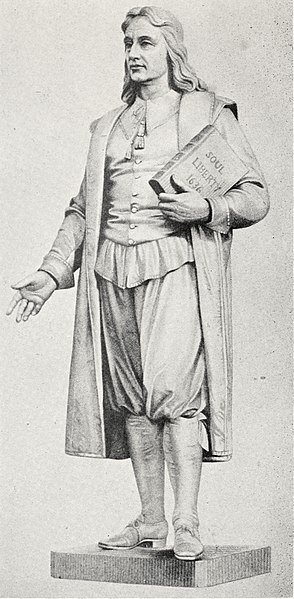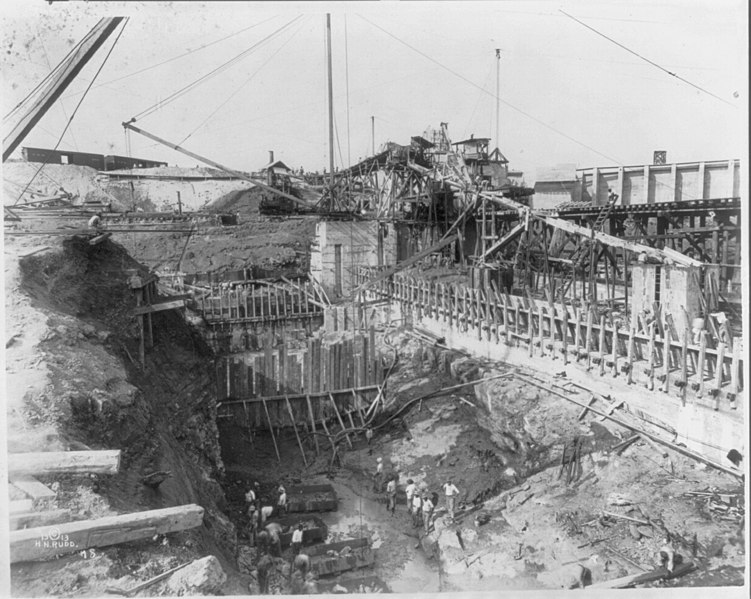Journey through significant historical events that occurred on February 5th, spanning centuries and touching on various aspects of human endeavor and natural phenomena.
From ancient seismic activities that predated the infamous eruption of Mount Vesuvius to pivotal moments in the evolution of political landscapes and groundbreaking achievements in science and arts, this overview encapsulates the breadth of human experience.
Each event, whether it be a landmark treaty, a groundbreaking scientific mission, or a moment of profound social justice, contributes to our understanding of the complex tapestry of human history.
February 5th Events in History
AD 62 – An earthquake in Pompeii, years before the infamous eruption of Vesuvius, causes significant damage
Before the catastrophic eruption of Mount Vesuvius in AD 79 that buried the cities of Pompeii and Herculaneum, Pompeii experienced a significant earthquake on February 5, AD 62. This earthquake caused substantial damage to buildings, infrastructure, and the city’s morale.
Also Read: February 4 – On this Day in History
Historical accounts suggest that the city was still in the process of rebuilding when Vesuvius erupted, pointing to the severe impact of this natural disaster. The earthquake was a precursor to the volcanic eruption that would later seal Pompeii’s fate, preserving it in time.
1576 – Henry of Navarre converts to Catholicism in order to ensure his right to the French throne, a pivotal moment in the French Wars of Religion
Henry of Navarre, later known as King Henry IV of France, made a pragmatic decision to convert to Catholicism to secure his right to the French throne amidst the French Wars of Religion. This period was marked by conflict between Catholics and Huguenots (French Protestants).
Also Read: February 6th Events in History
His conversion is famously associated with the statement, “Paris is well worth a mass,” indicating his willingness to adopt the majority religion of his realm for political stability and acceptance, although he later issued the Edict of Nantes in 1598, granting religious freedom to Huguenots and effectively ending the wars.

1631 – Roger Williams, the founder of Rhode Island, arrives in Boston from England
On February 5, 1631, Roger Williams, a Puritan minister and the founder of Rhode Island, arrived in Boston from England. Williams was known for his radical views on religious freedom and his advocacy for the separation of church and state, which were controversial at the time.
His ideas eventually led to his banishment from the Massachusetts Bay Colony. He fled southward, founding the settlement of Providence in what would become Rhode Island, as a haven for those seeking freedom of conscience and the separation of church and state.
1783 – In Calabria, Italy, a devastating earthquake leads to the loss of 50,000 lives
The 1783 Calabrian earthquakes were a series of devastating natural disasters that struck the region of Calabria in southern Italy. The first and most powerful earthquake occurred on February 5, 1783, leading to widespread destruction and the loss of about 50,000 lives.
The quakes triggered tsunamis and landslides, compounding the disaster. The events of 1783 stand as one of the earliest well-documented cases of a seismic sequence causing such extensive damage and loss of life in Italy.
1818 – Jean-Baptiste Bernadotte ascends to the Swedish throne as Charles XIV John of Sweden, marking the beginning of the Bernadotte dynasty
Jean-Baptiste Bernadotte, who ascended to the Swedish throne as Charles XIV John on February 5, 1818, was a Marshal of France under Napoleon before becoming King of Sweden and Norway.
His election to the throne was an outcome of the political intrigues surrounding the Napoleonic Wars and the decline of the previous Swedish royal house.
Despite his French origins, Charles XIV John became a successful and popular monarch, founding the Bernadotte dynasty, which still reigns in Sweden today. His reign marked a period of peace and development for Sweden, including reforms in education and the legal system.

1852 – The Hermitage Museum in Saint Petersburg, Russia, one of the largest and oldest museums in the world, is opened to the public
On February 5, 1852, the Hermitage Museum in Saint Petersburg, Russia, was officially opened to the public. Founded in 1764 by Catherine the Great, the museum was initially a private collection of paintings, sculptures, and artifacts for the enjoyment of the imperial family and close associates.
By the mid-19th century, it had grown into one of the largest and most prestigious museums in the world, boasting an extensive collection of art, including works from Leonardo da Vinci, Michelangelo, Raphael, and Rembrandt.
The opening of the museum to the public marked a significant cultural milestone, making a vast array of art and historical artifacts accessible to a wider audience.
1885 – King Leopold II of Belgium establishes the Congo as a personal possession, the Congo Free State
King Leopold II of Belgium established the Congo Free State on February 5, 1885, declaring it his personal possession. This event marked the beginning of a brutal and exploitative regime in the Congo Basin under Belgian colonial rule.
Leopold’s administration was responsible for widespread atrocities, including forced labor, mutilation, and the death of millions of Congolese people, as a result of the extraction of rubber and ivory.
The international outcry over these human rights abuses eventually led to the transfer of control from Leopold to the Belgian government in 1908, turning the Congo Free State into the Belgian Congo.

1900 – The United States and the United Kingdom sign a treaty for the Panama Canal
On February 5, 1900, the United States and the United Kingdom signed the Hay-Pauncefote Treaty, which paved the way for the construction of the Panama Canal.
The treaty nullified previous agreements that had guaranteed joint UK-US control over any proposed Central American canal, effectively giving the United States the unilateral right to build and control a canal across the Panama Isthmus.
This agreement was a significant step in U.S. efforts to expand its maritime capabilities and assert its presence as a global power. The Panama Canal, completed in 1914, remains one of the most significant engineering feats in history, greatly facilitating international maritime trade.
1917 – The Constitution of Mexico is adopted, establishing a federal republic with powers separated into independent executive, legislative, and judicial branches
The Mexican Constitution was adopted on February 5, 1917, amidst the Mexican Revolution, replacing the 1857 Constitution. It is one of the first constitutions in the world to include social rights and served as a model for the Weimar Constitution of 1919 and the Russian Constitution of 1918.
Among its progressive provisions were the establishment of land reforms, labor rights, restrictions on clerical and foreign powers, and the promotion of education and secularism.
This constitution laid the groundwork for modern Mexico, establishing a federal republic with an emphasis on social justice and equality.
1919 – Charlie Chaplin, Mary Pickford, Douglas Fairbanks, and D.W. Griffith launch United Artists
On February 5, 1919, the film studio United Artists was founded by four of the most prominent figures in early Hollywood: Charlie Chaplin, Mary Pickford, Douglas Fairbanks, and D.W. Griffith.
This venture was revolutionary for its time, as it was one of the first attempts by film artists to control their own work in the face of a studio system that heavily favored producers and distributors.
United Artists was created to allow filmmakers to finance and produce their own films, thereby retaining creative control and rights to their works. The founding of United Artists marked a significant shift in the power dynamics of the film industry, emphasizing the importance of artistic control and ownership.
1924 – The Royal Greenwich Observatory begins broadcasting the hourly time signals known as the Greenwich Time Signal or BBC pips
On February 5, 1924, the Royal Greenwich Observatory started broadcasting the hourly time signals, known as the Greenwich Time Signal or the “BBC pips.” These pips were designed to be broadcast via radio to provide an accurate and authoritative time reference to the public and broadcasters.
The signal consists of six short tones broadcast at one-second intervals, culminating in a longer tone at the top of the hour, allowing listeners to precisely set their clocks.
Originating from the Prime Meridian at Greenwich, these signals became a critical tool for timekeeping and navigation, symbolizing the global importance of accurate time measurement.
1958 – Gamel Abdel Nasser is formally nominated to be the first president of the United Arab Republic
Gamel Abdel Nasser, a significant figure in Arab politics and the second President of Egypt, was formally nominated to become the first president of the United Arab Republic (UAR) on February 5, 1958. The UAR was a political union between Egypt and Syria intended to bring about a broader Pan-Arab union.
Nasser’s leadership and vision for Arab nationalism and socialism were key driving forces behind this initiative. Although the UAR dissolved in 1961 with Syria’s secession, Nasser’s efforts significantly influenced Arab politics and the pursuit of unity in the region.
1962 – French President Charles de Gaulle calls for Algeria to be granted independence
On February 5, 1962, Charles de Gaulle, the President of France, made a significant announcement calling for Algeria to be granted independence, signaling a turning point in the Algerian War of Independence (1954–1962).
De Gaulle’s declaration came after years of conflict and negotiations, acknowledging the inevitability of Algerian independence and the need to end the costly and divisive war. This stance led to the Evian Accords in March 1962, which formally ended the war and led to Algerian independence on July 5, 1962.
De Gaulle’s decision was controversial in France, especially among French settlers in Algeria and military personnel, but it marked a crucial step in the decolonization process.
1971 – Apollo 14 astronauts Alan Shepard, Stuart Roosa, and Edgar Mitchell land on the Moon in the Fra Mauro highlands
On February 5, 1971, Apollo 14 astronauts Alan Shepard, Stuart Roosa, and Edgar Mitchell landed on the Moon in the Fra Mauro highlands, a region that was intended to be explored by the aborted Apollo 13 mission.
This mission marked the third successful manned Moon landing by NASA. Alan Shepard, one of the astronauts on this mission, became famous for hitting two golf balls on the lunar surface, showcasing the lower gravity environment of the Moon.
The mission was crucial for gathering scientific data and testing new technologies, contributing significantly to our understanding of the Moon’s composition and the feasibility of future lunar missions.
1976 – The 1976 Constitution of Cuba is adopted by national referendum
The 1976 Constitution of Cuba was adopted on February 5, 1976, following a national referendum, marking a pivotal moment in Cuban history.
This constitution formalized Cuba’s socialist system, defining the Communist Party of Cuba as the leading force of society and the state. It outlined the government’s structure, including the National Assembly of People’s Power as the highest legislative body, and emphasized principles such as state control over the means of production and the importance of socialist property.
The adoption of this constitution reaffirmed Cuba’s commitment to Marxist-Leninist ideology and its alignment with the Soviet Union during the Cold War, shaping the political, economic, and social framework of the country for decades.
1985 – Ugo Vetere, then the mayor of Rome, and Chedli Klibi, the mayor of Carthage, meet in Tunisia to sign a treaty officially ending the Third Punic War which lasted 2,131 years
On February 5, 1985, a symbolic and somewhat humorous event took place when the mayors of Rome and Carthage met in Tunisia to sign a treaty officially ending the Third Punic War, over 2,000 years after it had concluded.
The Third Punic War (149–146 BC) was the final conflict between the ancient Roman Republic and the Carthaginian (Punic) empire, ending with Rome’s complete destruction of Carthage.
The treaty signed in 1985 was largely ceremonial, recognizing the long history of peace and cooperation that had followed the ancient hostilities. It served as a gesture of friendship and reconciliation between Italy and Tunisia, the modern-day location of ancient Carthage.
1994 – Byron De La Beckwith is convicted of the 1963 murder of civil rights leader Medgar Evers
On February 5, 1994, Byron De La Beckwith, a white supremacist, was convicted for the murder of Medgar Evers, a civil rights leader, after two previous trials in 1964 ended in hung juries. Medgar Evers was assassinated on June 12, 1963, in Jackson, Mississippi, where he served as the state’s field secretary for the NAACP.
The conviction came about 30 years later, largely due to new evidence and a renewed commitment to prosecute civil rights-era cold cases. Beckwith’s conviction marked a significant moment in the civil rights movement, highlighting the ongoing quest for justice in cases of racial violence and murder.
2003 – The Secretary of State for the United States, Colin Powell, addresses the United Nations Security Council concerning Iraq and weapons of mass destruction
On February 5, 2003, Colin Powell, then Secretary of State of the United States, delivered a speech to the United Nations Security Council in which he presented evidence alleging Iraq’s possession of weapons of mass destruction.
This address was part of the U.S. government’s effort to gain international support for military action against Iraq. Powell’s presentation included satellite images, audio recordings, and other forms of intelligence.
The claims made in this speech were later found to be largely inaccurate, and the lack of discovery of such weapons has since cast a shadow over the justification for the Iraq War and Powell’s legacy.
2008 – A major tornado outbreak across the Southern United States kills 57
On February 5, 2008, a major tornado outbreak occurred across the Southern United States, resulting in the deaths of 57 people. This series of tornadoes affected states including Tennessee, Arkansas, Kentucky, and Alabama, causing widespread destruction and making it one of the deadliest tornado outbreaks in recent U.S. history.
The severity of the storms led to a significant emergency response effort and highlighted the need for improved tornado preparedness and response strategies in vulnerable regions.
2020 – The impeachment trial of U.S. President Donald Trump concludes with the Senate voting to acquit on both articles of impeachment
The impeachment trial of U.S. President Donald Trump concluded on February 5, 2020, with the Senate voting to acquit him on both articles of impeachment. The House of Representatives had impeached President Trump on December 18, 2019, on charges of abuse of power and obstruction of Congress related to his dealings with Ukraine.
The acquittal in the Senate, largely along party lines, marked the end of the third presidential impeachment trial in U.S. history. This event was significant in American politics, underscoring deep partisan divisions and sparking widespread debate about the impeachment process and presidential accountability.
